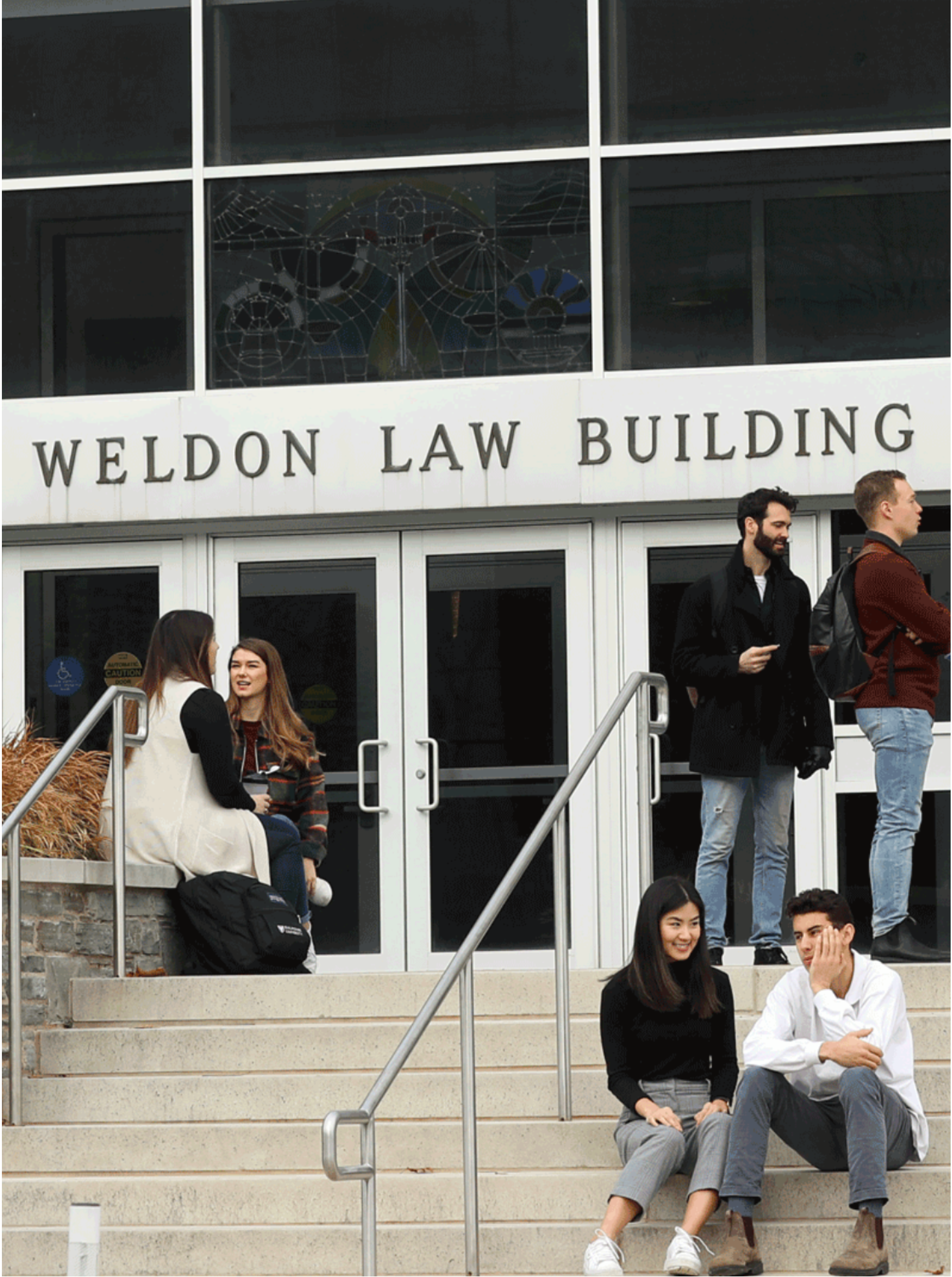Client Services
At initio, we understand the barriers that typically prevent start-ups from accessing a lawyer.
We deliver low-cost legal services in Atlantic Canada related to technology, intellectual property, privacy and business law issues to those that otherwise cannot afford to retain a lawyer. Our diverse clients range from sole proprietors to not-for-profits to business corporations.
Our Practice Areas
-
Navigating the business world can be challenging. We work closely with our clients to service their corporate and business matters.
We provide support and representation in the following areas:
Entity formation and organization
Business name registration
Partnership registration
Incorporation
Shareholder, partnership, and founder agreements
Governance advice and policies
Stock option plans, equity investments, and other revenue-sharing arrangements
Dissolution and wind-up
-
Our expertise extends to charity, not-for-profit, and co-operative law in Canada. We recognize that these entities need advice that other for-profit corporations and businesses require.
We help clients create, manage, and govern charities, not-for-profit and co-operative entities, by providing services such as:
Incorporation
Formation and organization of entities
Charitable applications
Fundraising strategies and related compliance matters
Relationship (or association) agreements, membership agreements, services agreements, and agency agreements
Social enterprise and finance
Governance policies and advice
Amalgamations and mergers
Dissolution and wind-up
-
Our work in drafting and reviewing legal documents complements our various practice areas, enabling us to offer a comprehensive range of services that adapt to our clients' evolving needs, such as:
License agreements
Assignments
Terms of use & privacy policies
Sales/distribution agreements
Service agreements
Software agreements
Non-disclosure and confidentiality agreements
Commercial leases
Employment agreements
Independent contractor and volunteer agreements
Non-competition agreements
Waivers
Various entertainment contracts
-
Every organization creates some form of intellectual property (“IP”) which can often be its most important asset. We provide IP related advice to our clients in areas such as copyright, licensing, entertainment, confidential information and privacy. Our advice in this area extends to services such as:
Information on developing an IP strategy and commercialization matters, including IP ownership, licensing, and preliminary freedom to operate information
Agreement related to the development, ownership and commercialization of IP rights such as: development and research agreements; assignments; license agreements; non-disclosure and confidentiality agreements; software agreements; and service agreements
Please note that we are not trademark agents or patent agents. Depending on the particulars, we may be able to give general advice and information as to filing trademarks and patents, but we cannot file trademarks or patents acting on your behalf.
-
Individuals, businesses and organizations operating in Canada may be subject to a variety of privacy laws. We provide services to clients on a wide range of privacy issues so that they can understand and meet their privacy obligations, such as:
Review of organizational privacy and security procedures
Privacy risk identification and management
Compliance with Canadian privacy, anti-spam and telecommunications legislation
Implementation of privacy, security and anti-spam and related policies and procedures
Terms of use & privacy policies
-
Information Technology (“IT”) continues to redefine traditional business models for the exchange and delivery of products and services with the arrival of IT such as artificial intelligence, software as a service and social media.
We provide integrated IT-related legal service with our expertise in our various practice areas, such as:
Service agreements
Software agreements
Technology development and co-development agreements
Protection and enforcement of intellectual property rights
Technology transfer agreements
Non-disclosure and confidentiality agreements
Compliance with privacy and anti-spam legislation and regulations
Negotiation support services in connection with IT disputes
-
We may assist with negotiations and strategic planning related to our clients’ business/organization, provided it falls within our practice areas. This may include services such as drafting demand letters, enforcing intellectual property rights, IT disputes, and managing relationships between individuals involved with the organization.
Please note that we do not provide any litigation services.
-
We conduct legal research to enhance our legal advice within our practice, to draft legal memorandums for our clients and to provide legal information to the entrepreneurial ecosystem. For more information, please visit our Resources Page for guides, articles, and other publications on various legal topics that may benefit you and your business or organization.
We also offer legal information through presentations on a range of legal issues within our practice areas. For more details, please visit our Events Page.
Eligibility Criteria
Any form of business or community organization in Nova Scotia that has:
A legal matter:
within our jurisdiction and areas of practice
that will provide meaningful learning opportunities for law students
that is in alignment with the Clinic’s dual purpose
Not surpassed our financial threshold
Not already retained legal counsel
Frequently Asked Questions (FAQ)
-
Lawyers have a duty to avoid conflicts of interest and must not act for a client where a conflict exists.
When a new potential client contacts us, one of our first questions will be for the names of other involved parties. This is so that we can run a conflict check - this is a confidential and internal process conducted to ensure there are no conflicts of interest that could affect representation, such as if we already represent the opposite party.
Conflicts will also need to be cleared for existing clients upon there being a matter with a new party involved/opposite.
Tip: It can take at least 24 hours for conflicts to clear. Factor in the timing to clear conflicts when you contact a lawyer.
-
Disbursements are third-party costs, such as government filing fees for business registrations, incorporations, name searches, and other out of pocket expenses. Clients are responsible for their own third-party costs. At the initio Clinic, we will let you know before any disbursements will be incurred.
Tip: Ask your lawyer about anticipated disbursement costs as these can be a real factor to be considered.
-
A lawyer is a licensed professional that can provide legal advice and represent clients in legal matters. Lawyers in Canada are governed by the Rules of Professional Conduct established by law societies, which mandates them to deliver competent and ethical services.
Whether you need a lawyer depends on the complexity of your legal issue. Having a lawyer can be very beneficial for tasks like structuring a business, drafting and reviewing contracts, or handling disputes.
Tip: Many lawyers offer free initial consultations to discuss your legal needs and determine if they can represent you. Information shared during these consultations is generally kept confidential.
-
An articled clerk is a law graduate that is completing a mandatory 12-month period of experiential learning under the supervision of a lawyer, which is meant to assist in the transition from law school to the actual practice of law.
Tip: An articled clerk is obligated to act in good faith in fulfilling and discharging all the commitments and obligations arising from the articling experience. Their work must be supervised by lawyers, who provide constructive feedback and assist them in learning legal practice and client management skills.
-
Senior law students are third-year students at the Schulich School of Law, that work at the initio Clinic during the fall or winter semesters. The initio Clinic is both a legal clinic and an academic course, where students gain practical legal experience. There may be a brief transition period between semesters when new students are onboarded.
Tip: Senior law students often bring fresh perspectives on emerging legal issues. All their work is supervised by a lawyer, who provides feedback and helps them develop legal and client management skills.
-
Yes, files at the initio Clinic are supervised by a lawyer. While our articled clerk and senior law students may work on your file, a lawyer oversees the work as part of our professional obligations.
Tip: Supervision by lawyers helps the work of our articled clerk and senior law students to be accurate and reliable for clients. It also provides them with valuable training and exposure to the practical aspects of law, as well as an understanding of professional ethics and traditions.
-
While online templates can be a helpful starting point, they will not be tailored to your specific legal needs or compliant with local laws. It is recommended to have a lawyer review or draft documents to see whether they are appropriate for your situation and legally sound.
Tip: Using a customized contract can mitigate potential legal issues down the road.
-
Yes, we offer various resources and training opportunities for start-ups, including workshops, presentations, and access to legal guides. These resources are legal information, which is designed to help entrepreneurs begin to understand legal requirements, which may apply to their business.
Tip: Check our Resources and Events Pages for the latest information on available training and materials.
-
A Retainer Agreement or Engagement Letter sets the terms of the lawyer-client relationship. A lawyer-client relationship is established when a lawyer agrees to act for you in providing legal services, and the Retainer Agreement or Engagement Letter is signed. These are formal documents that outline the scope of services the lawyer will provide, along with the terms, conditions, fees, and responsibilities between you and the lawyer. It acts as a contract, that helps provide clarity and mutual understanding of the relationship before any work begins.
Tip: Carefully review a Retainer Agreement or Engagement Letter to understand the services offered and your responsibilities as a potential client.
-
Legal Information is general. It applies to everyone and can come from lots of different sources. Legal information can help you understand:
general laws and legal processes
your general legal rights and responsibilities
when and where to get more legal help, including legal advice.
Legal Advice is tailored and can only come from a lawyer. It applies just to you and your situation. Legal advice can help you understand:
how the law applies to your specific situation
the best way to act on your legal rights and responsibilities
the most likely outcome of your case in that lawyer’s opinion.
Both legal information and legal advice are useful. You do not always need legal advice. Sometimes all you need is legal information, which can help you decide if you need to get legal advice.
Tip: Legal advice is personalized and specific to your case, while legal information is general and applies to broader situations.
-
A lawyer-client relationship is a formal arrangement between you and your lawyer, established when the lawyer agrees to represent you in providing legal services. This relationship is typically confirmed through a Retainer Agreement or Engagement Letter, which outlines the scope of services, fees, and the responsibilities of both parties.
Once this relationship is established, your lawyer is professionally obligated to act in your best interests, maintain confidentiality, and provide competent legal advice and representation.
Tip: Clear communication with your lawyer is key to a successful lawyer-client relationship. Make sure you fully understand the terms of your Retainer Agreement or Engagement Letter, and do not hesitate to ask questions about the services provided or the legal process.


